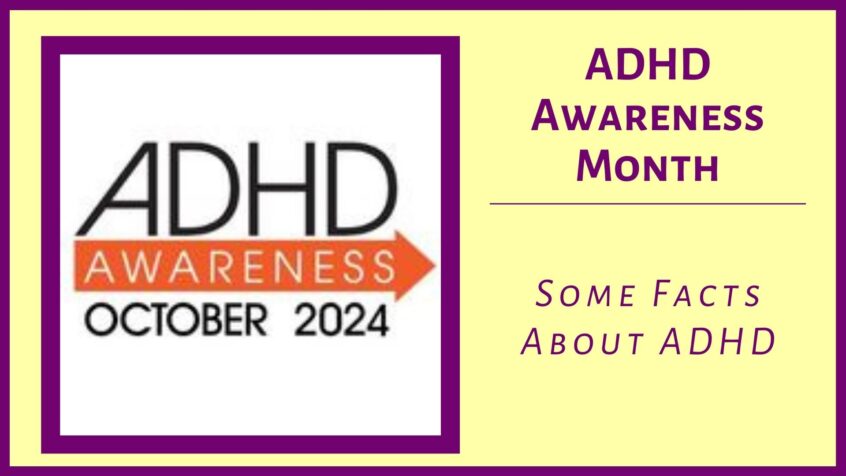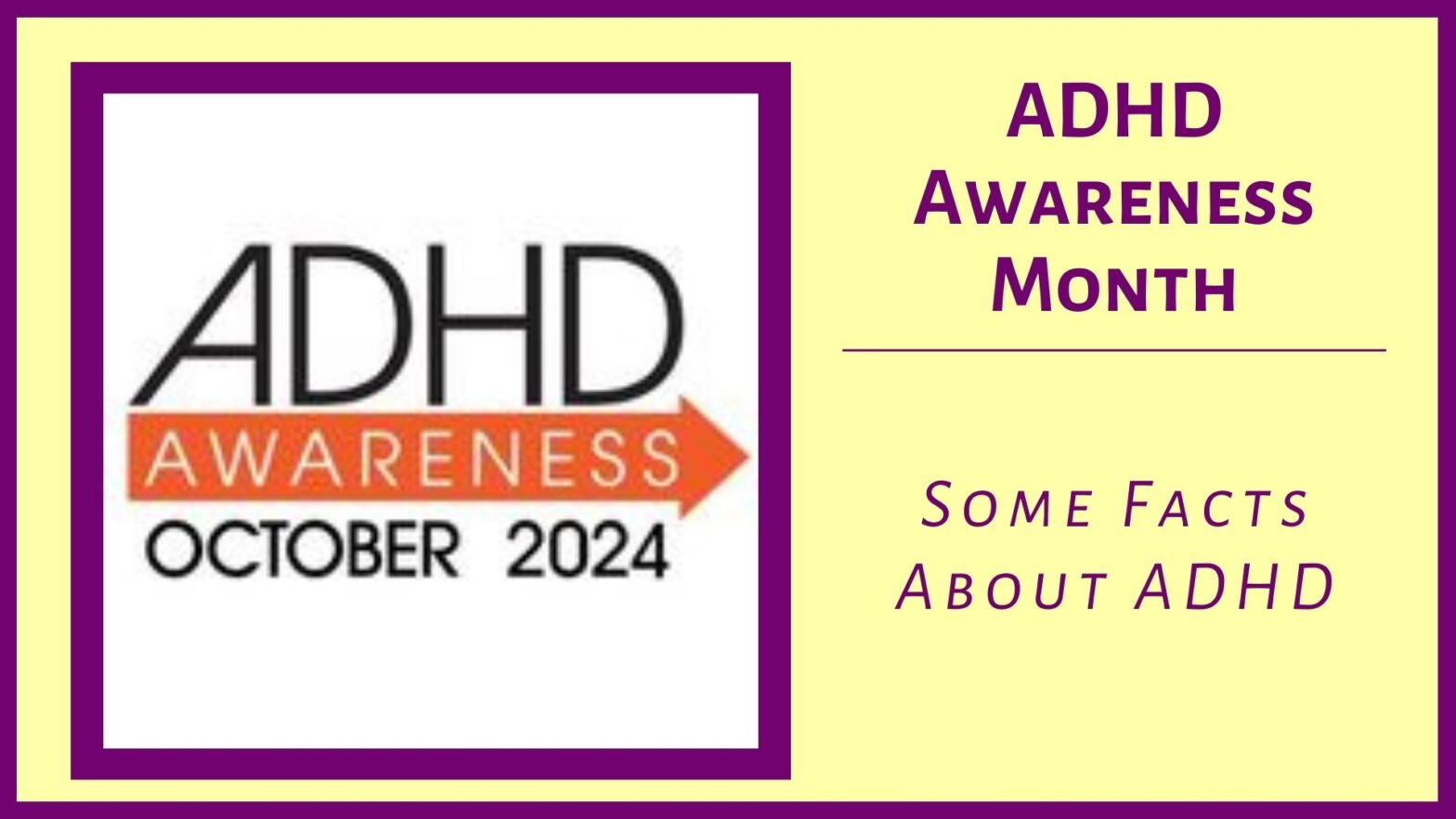ADHD AWARENESS MONTH
Some Facts About ADHD

October is ADHD Awareness Month.
For today’s blog, I am talking about current statistics, myths, facts, and more.
Let’s Chat About The Real Facts About ADHD

ADHD is not caused by bad parenting.
One of the largest myths around is that ADHD is caused by bad parenting. Or – in other words – “If you parented better, your child would behave better.”
This is NOT true. While scientists don’t fully understand what causes ADHD, studies have shown that there are physical differences in the brains of people with ADHD compared to neurotypical people.
In fact, doubling down on “more discipline” in our ADHD kids creates further problems as the added stress creates a cycle of behaviors from both parent and child, and the connection that is so important to our kids is damaged.

ADHD impacts ALL genders.
This myth is based on the fact that all the very original studies on ADHD were done on young white boys. Therefore all the criteria originally was based on the way ADHD was observed in boys.
This was typically hyperactive behavior and presented in ways that were very obvious – bouncing, hopping, non stop motion, extra talkative, etc. However, as of at 2022 study, while about 13% of boys are diagnosed with ADHD, there are also 7.5% of girls diagnosed, with the numbers for both increasing.
This led to many girls (and people socialized as girls) being underdiagnosed or misdiagnosed with other diagnosis. In addition to this, many boys that are diagnosed with the Inattentive type of ADHD were also under or misdiagnosed. The same holds true for BIPOC children.

Therapeutic use of ADHD medication is NOT addictive.
There are stimulant and non stimulant medications. Typically non stimulants are not considered addictive and are often tried first with children with ADHD.
Then there are two classes of stimulant medications – methylphenidate and amphetamine. Both of these types of stimulants are POTENTIALLY addictive.
However most cases of addictions based on stimulants are done by people either not prescribed the medication at all; or are mis-using it by taking more than is prescribed or taking it in a way that is not prescribed. (For example, injecting or snorting the medication that is not meant to be injected or snorted.)
Most important to notice is that studies have shown that proper and correct use of stimulant medication for ADHD actually decreases the likelihood that said child will become addicted to drugs or alcohol. In addition, no evidence has been found that the use of stimulant medications for ADHD in kids has led to addictive disorders in adolescence or adulthood.

ADHD is NOT about people being “lazy”
There’s always been people who think that people with ADHD are just “lazy” and that if they just worked harder/better/faster/differently, everything would be fine. (This leads to children becoming either stressed perfectionists or anxious kids who grow up feeling broken.)
When people observe someone with ADHD who can, in some circumstances, focus, pay attention, get started, or be organized – it appears to the neurotypical person that the person with ADHD could do it if they wanted to badly enough.
The fact is that ADHD is a problem with the chemicals and pathways in the brain. Even parts of the brain are physically different in folks with ADHD vs. neurotypical. ADHD symptoms are the result of neural messages not being effectively transmitted until the activity or task is something that provides them with enough dopamine – typically when it’s urgent, interesting, or novel.

Emotion Regulation is very much a part of ADHD
Often, even when folks understand that ADHD causes people to struggle with executive functions like planning, organizing, and getting started doing a task, they fail to understand that emotional regulation is also an executive function skill that can, and often is, impaired with people with ADHD.
Emotional regulation IS an executive function skill. So for kids with ADHD it may be an average of 30% behind their neurotypical peers when it comes to managing their own emotions. A 10 year old child with ADHD may only have the emotional regulation skills at about a 7 year old.
And adults with ADHD may also struggle with emotional regulation. This causes things like exxagerated responses, mood swings, and rejection sensitivity.

There is no cure or “quick fix” for ADHD
Some people think that once a person is diagnosed and if they take medication, that everything will be all better. While it’s true that studies have shown over 80% of people receiving a therapeutic dose of medication report improvement in their symptoms, medication alone does not “fix” their ADHD.
Instead, a combination of therapy, medication, eating well, supplements, having a coach, learning what works for you, etc. are ALL important pieces of living and thriving with ADHD. For parents and caregivers of children with ADHD – studies are showing parent training or parent coaching to be VITALLY important to the success of their child.
In addition, when you do see a therapist or coach (preferably one who has ADHD) – you must understand that learning to thrive with ADHD is often a LOT of trials and errors. It takes time to manage.

ADHD Coaching By an ADHD Coach who has ADHD can be life changing.
I would know.
Not only AM I an ADHD Coach who has ADHD – but I also have had ADHD Coaching by a person who has ADHD. In fact I still receive coaching by a coach who has ADHD.
Why?
Because it has proven to be life changing.
The validation, understanding, empathy, and humor that my ADHD Coaches have given me has allowed ME to thrive.
I’d love to help YOU thrive.
I’d love to help you thrive as a person with ADHD.
I’d love to help you as the parent or caregiver of a person with ADHD.
Book a free, no obligation call with me and let’s chat about partnering together.

 Don’t Delay Joy
Don’t Delay Joy
Kat Sweeney, MCLC

